A Level Religion, Philosophy & Ethics
Why should I study A Level Religion, Philosophy & Ethics?
![]()
Religion, Philosophy & Ethics is an academic subject which is well respected by many of the more traditional universities.
To study philosophy and ethics is to study the whole of human life: where we come from, where we’re going and everything in between. It involves not taking things at face value, arguing and discussing issues which affect us all and researching the works of many famous and world-renowned scholars, such as Plato, Socrates and Aristotle. In ethics, you will cover dilemmas including how to live a good life, our rights and responsibilities, the language of right and wrong and moral decisions.
If you enjoy questioning everything that you have been told, debating and discussing, and considering why people hold certain beliefs and ideals then Religion, Philosophy & Ethics may be ideal for you.
Studying this subject will enable you to:
- Adopt an enquiring, critical and reflective approach to the study of religion, philosophy and ethics.
- Develop an understanding and appreciation of religious thought and its contribution to individuals, communities and societies.
- Develop your interest in a rigorous study of religion and belief and relate it to the wider world.
- Develop knowledge and understanding appropriate to this subject.
- Reflect on and develop your own values, opinions and attitudes in the light of your study.
Course Specification
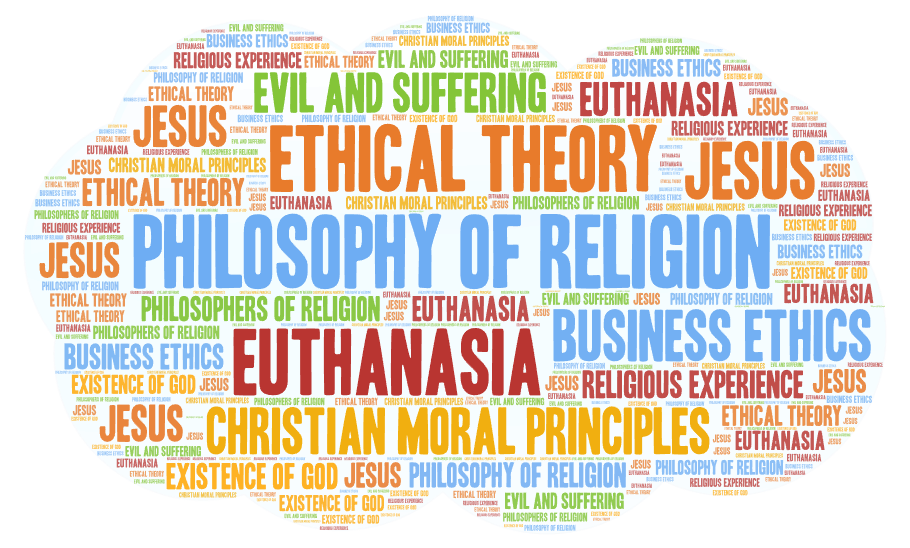
A Level Religion, Philosophy & Ethics is a course for people who want to think about the world and belief rather than just be given answers.
You will be encouraged to consider questions about life, the universe and everything and reflect upon the work of some of the greatest thinkers who have ever lived. You will contemplate issues such as the existence of God, the purpose of life, as well ask questions about some of the most important religious texts. You will develop skills directly transferable to any future academic study, learning to construct critical and analytical essays, discuss complex concepts and reflect upon the thinking of others.
The course focusses on the following areas:
Philosophy of Religion
You will consider philosophical language and thought evaluating ancient philosophical influence and the concept of the souls and mind-body dualism, as well as the traditional arguments for the existence of God and the problem of evil and suffering.
You will study philosophers of religion – Marx and Freud, influences and developments in modern thought, problem and use of language.
Religion and Ethics
You will look at the relationship between religion and morality analysing the key features of utilitarianism, situation ethics, natural law and Kantian ethics approaches to decision-making. You will apply ethical and religious approaches to decision-making for euthanasia and business ethics, as well as debates about right and wrong, good and bad. You will look at conscience and developments in ethical thought on sexual ethics.
Developments in Christian thought:
You will look at beliefs, teachings and ideas about human life; the world and ultimate reality. You will learn about sin, death and the afterlife, the origins and development of Christianity, exploring the nature of God and Jesus and Christian moral principles and action. You will also look into religious pluralism, theology and society answering questions such as can you get to heaven if you aren’t a Christian and should Christians attempt to convert others. Gender, including Christian teachings on the role of men and women and feminism and theology will also be explored as well as challenges in secularism and liberation theology.
Examining Board Information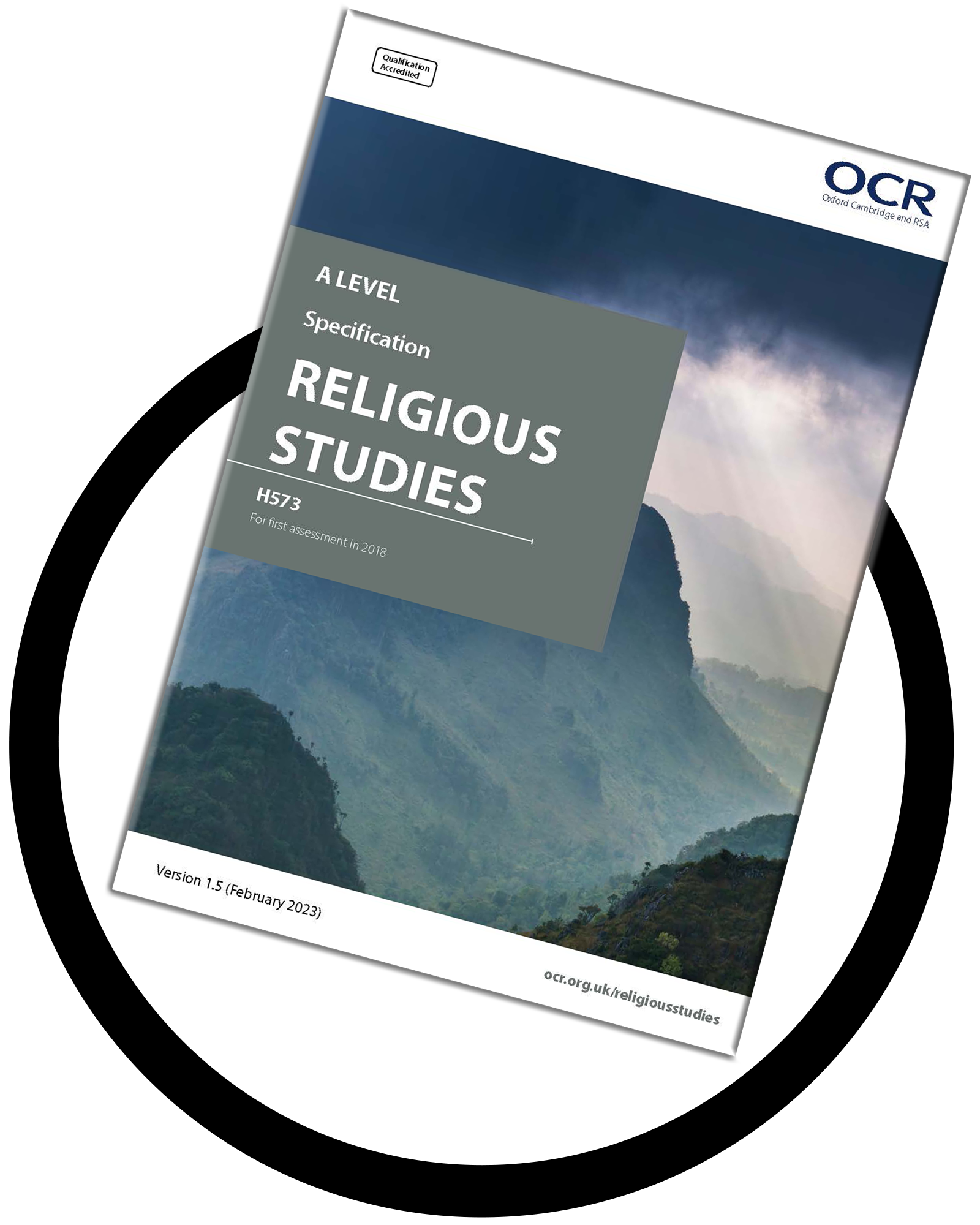
Board: OCR
Course Code: H573
Click the image on the right to download the full course specification.
Suggested Reading

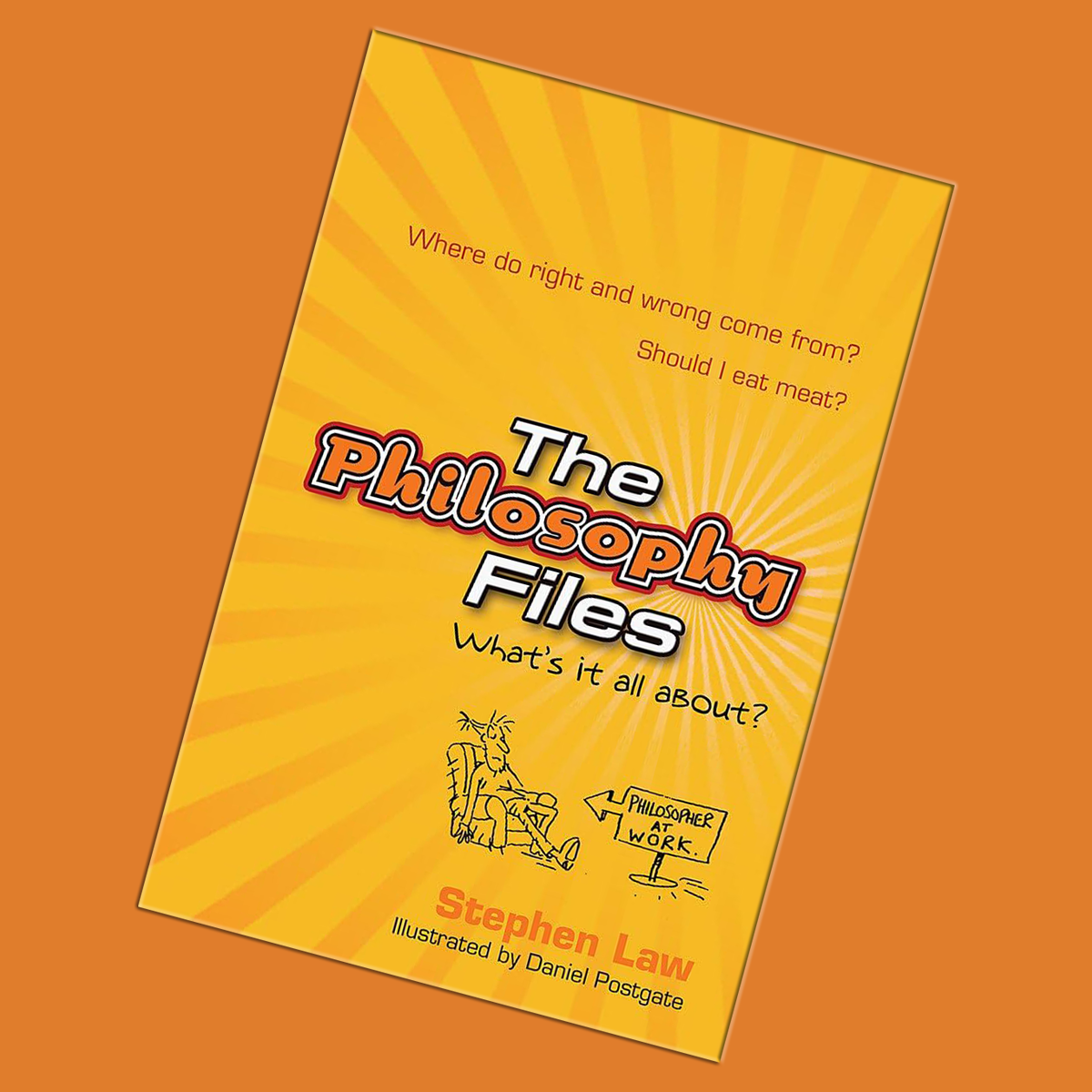
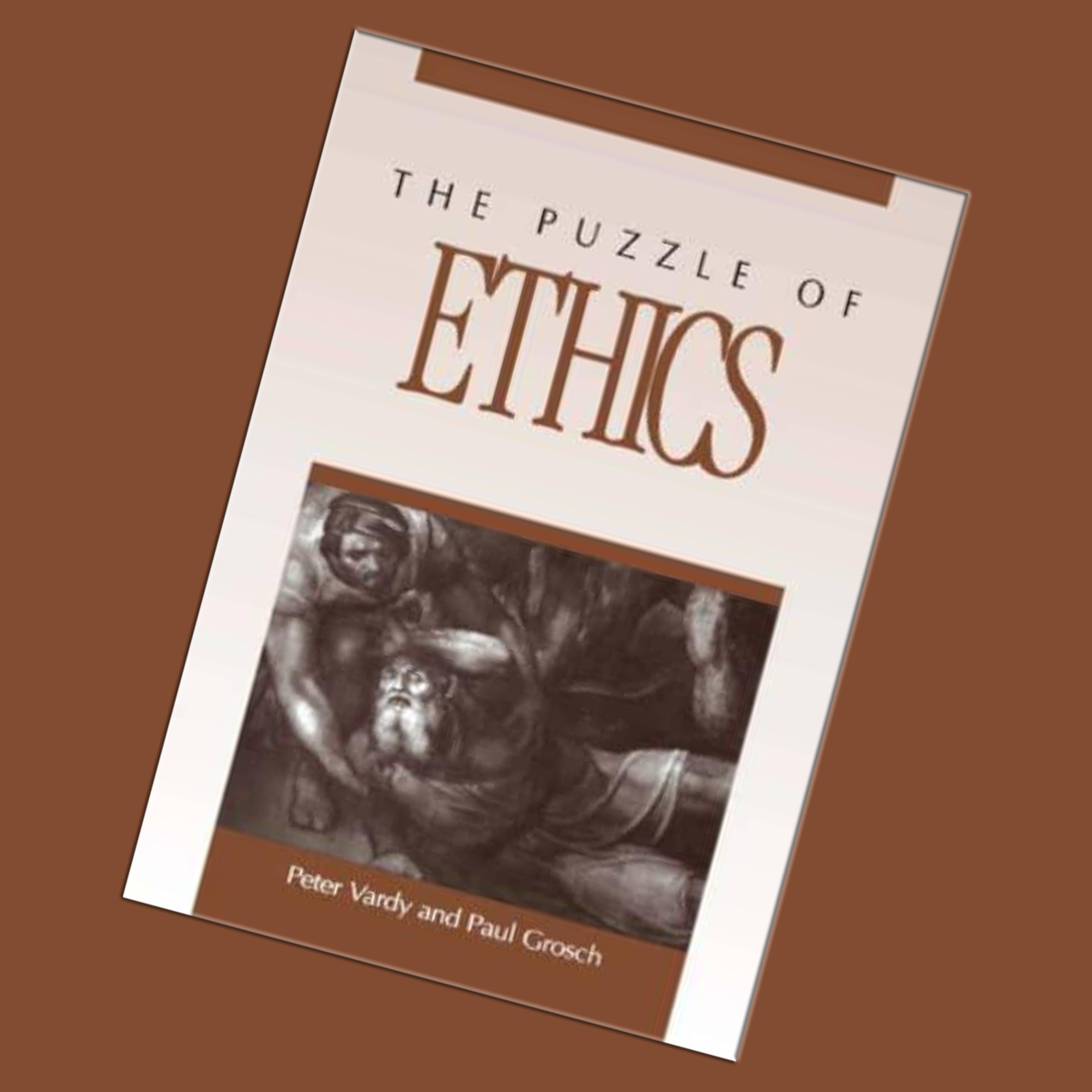
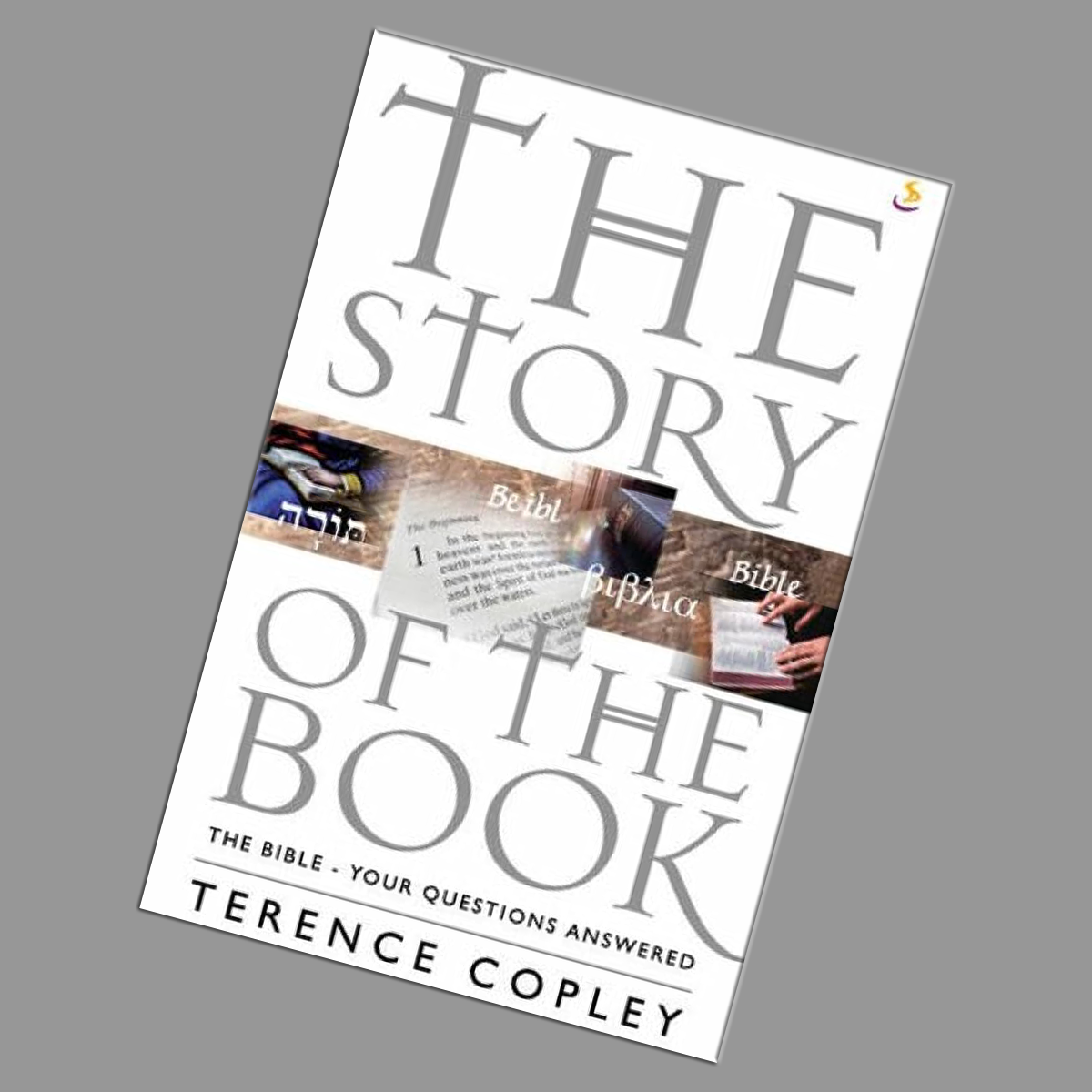
See below suggested reading, which can be purchased through Amazon (often in good, used condition), or Kindle and many books are also available to borrow from the LRC.
General Books on Philosophy
- The Philosophy Files by Stephen Law
- The God Delusion by Richard Dawkins
- Teach Yourself Philosophy of Religion by Mel Thompson
- Philosophy A Graphic Guide by Dave Johnson and Judy Groves
- 50 Philosophy Ideas by Ben Dupre
Books Recommended by OCR
- The Autobiography of Saint Teresa by Saint Teresa
- Consciousness; an introduction by Susan Blackmore
- The Blind Watchmaker by Richard Dawkins
- Principles of Philosophy by Rene Descartes
- The Idea of the Holy by Rudolf Otto
- An Introduction to Plato’s Republic by Julia Annas
- The Concept of the Mind (Penguin) by Ryle Gilbert
- God, Freedom and Evil by Alvin Plantinga
- Intro to the Philosophy of Religion by Brian Davies
- The Question of God by Michael Palmer
General Books on Ethics
- Puzzle of Ethics by Peter Vardy
- Ethical Studies by Robert Bowie
- A very short introduction to Ethics by Simon Blackburn
- The Moral Philosophers: An Introduction to Ethics by Richard Norman
- Teach Yourself Ethics by Mel Thompson
Books Recommended by OCR
- Catechism of the Catholic Church by Geoffrey Chapman
- Situation Ethics – The New Morality by Joseph Fletcher
- Causing Death and Saving Lives (Penguin) by John Glover
- Practical Ethics by Peter Singer
- Business Ethics by Andrew Crane
- Utilitarianism by John Stuart Mill
- Sacred Congregation for the Doctrine of the Faith by The Catholic Church
- Ethics: Discovering Right and Wrong by Louis Pojman
- The Four Loves by C.S Lewis
- Physics (Oxford World's Classics) by Aristotle
- An introduction to the morals and principles of legislation by Jeremy Bentham
- Rethinking Life and Death by Peter Singer
- Ethical Theory by Russ Shafer-Endau
- SCM Study Guide to Ethics by Neil Messer
General Books on Developments in Christian Thought
- The Story of the Book by Terence Copley
- The Shack by William Young
- Christianity – A Very Short Introduction by Linda Woodhead
- Teach Yourself Christianity by John Young
- History of Christianity by Nick Page
Books Recommended by OCR
- Confessions by Saint Augustine
- Catechism of the Catholic Church by Catholic Church
- Christian Theology by Alistair McGrath
- Institutes of the Christian Religion by John Calvin
- Shadow of the Galilean by Gerd Theissen
- City of God by St. Augustine
- A Theology, The Basics by Alistair McGrath
- SCM Study Guide to Ethics by Neil Messer
- Death and Eternal Life by John Hick
Assessment Format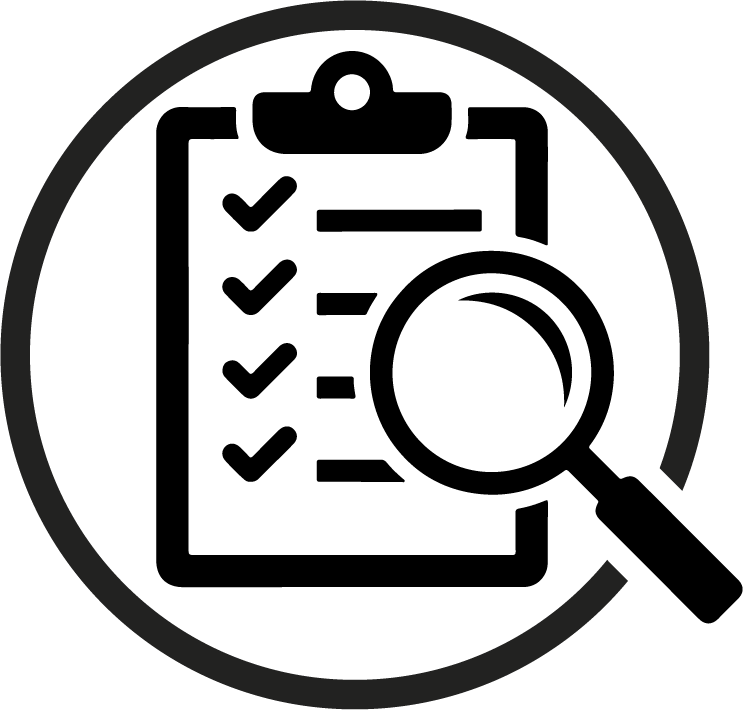
Paper 1: Philosophy of Religion
Written examination (2 hrs). This paper is worth 33.3% of the overall marks for this qualification.
Paper 2: Religion and Ethics
Written examination (2 hrs). This paper is worth 33.3% of the overall marks for this qualification.
Paper 3: Developments in Christian Thought
Written examination (2 hrs). This paper is worth 33.3% of the overall marks for this qualification.
In all three exams, marks are awarded for both how effectively students understand and communicate ideas, as well as how they can construct an argument and evaluate different points of view.
Course Entry Requirements
This course requires a Grade 5 or above in both GCSE English and GCSE Religious Education.
Employability Skills
Employability Skills are essential skills, personal qualities and values that will enable you to thrive in any workplace. Along with good technical understanding and subject knowledge, employers often outline a set of skills that they want from an employee.
This course will help you to develop the following employability skills:
- Ability to select information to support your case and to piece these ideas together in a coherent piece of writing
- Clear presentation of arguments, views and distinctions
- Develop the ability to understand others and express yourself for maximum effect in all situations
- Higher thinking skills such as analysis and evaluation
Next Steps
Students can go on to degrees in Philosophy, Theology, Law, Religious Studies, Politics, Sociology, Government & Politics, English and Social Anthropology.
The subject is relevant to careers in Law, Politics, the Church, Social Work, Civil Service, Anthropology and Journalism.
10 Possible Careers
- Anthropology
- Charity Coordinator
- Civil Service
- Counselling
- International Development
- Journalism
- Law
- Politics
- Social Work
- The Church
Student Profile: Noor
 Noor's subjects
Noor's subjects
A Level History
A Level Law
A Level Religion, Philosophy & Ethics
Community Sports Leadership Award (CSLA)
I find the staff at Warlingham to be very supportive; the careers' advisor has helped me find a route into my ideal career as an insurance solicitor. I have chosen the subjects that will allow me to take a relevant course at university. I really feel like I am part of a community here.








